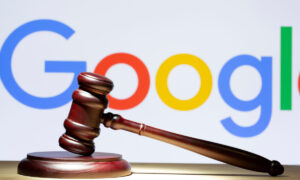New Jersey Now Criminalizes the Creation and Sharing of Deepfakes, With Penalties of Up to 5 Years in Prison

New Jersey Criminalizes Deepfake Creation and Distribution
In a significant move, New Jersey has enacted legislation making the creation and sharing of deepfakes a criminal offense. This new law reflects growing concerns about the misuse of advanced technology and its potential harm to individuals and society.
Understanding Deepfakes
What are Deepfakes?
Deepfakes are realistic-looking fake videos or audio recordings generated by artificial intelligence (AI). They typically involve the manipulation of an existing video or audio, where a person’s likeness or voice is altered to make it appear they are saying or doing something they did not actually do. The technology behind deepfakes utilizes machine learning algorithms, making it increasingly difficult to differentiate between real and fake content.
Why are They a Concern?
Ever since their rise in popularity, deepfakes have raised alarm bells across various sectors:
- Misinformation: Deepfakes can easily be used to spread false information, particularly in political contexts.
- Defamation: Individuals can have their images and voices manipulated, leading to reputational damage.
- Fraud: Deepfakes pose risks in financial sectors, where they can be used to impersonate individuals to commit fraud.
- Privacy Violations: Unauthorized use of someone’s likeness in deepfake content can infringe on personal and legal rights.
New Legislation in New Jersey
Key Provisions of the Law
Under the new law in New Jersey, the creation, distribution, or sharing of deepfakes is classified as a crime. Here’s what you need to know about the law:
- Criminal Charges: Those found guilty of creating or distributing deepfakes can face severe penalties, including imprisonment for up to five years.
- Targeting Malicious Intent: The law specifically targets deepfakes that are created with the intent to deceive, defraud, or harm individuals or organizations.
- Scope of Application: This legislation is applicable to various forms of deepfake media, including video and audio formats.
Broader Implications
This law in New Jersey is part of a larger movement across the United States to address the ethical and legal challenges posed by deepfake technology. Other states and jurisdictions are also considering similar measures to combat the harmful effects of deepfakes.
The Ongoing Debate
Support for the Legislation
Proponents of the law argue it is a necessary step in protecting individuals from the potential harms associated with deepfakes. They emphasize:
- Protection from Manipulation: The legislation can help safeguard people from being misrepresented and prevent the spread of damaging misinformation.
- Reinforcing Accountability: By holding individuals criminally accountable, the law aims to deter the malicious creation and distribution of deepfake content.
- Enhancing Public Trust: Establishing clear legal ramifications for deepfakes could foster greater trust in digital media.
Concerns About Free Speech
On the flip side, some critics of the law have raised concerns about how it might impact free speech. Key points include:
- Chilling Effect: There are fears that stringent penalties could deter creators from expressing themselves freely, particularly in parodic or satirical contexts.
- Technical Challenges: Determining the intent behind a deepfake can be complicated, leading to potential misapplications of the law.
- Censorship Risks: Opponents worry about the potential for misuse of the law to silence legitimate expression or criticism.
Looking Ahead
As deepfake technology continues to evolve, it is crucial for lawmakers, technologists, and society to engage in ongoing discussions. Striking the right balance between protecting individuals from potential harm and preserving the freedoms of expression will be challenging. The legislation in New Jersey marks a significant step in the complex dialogue around emerging technologies and their implications for society.





